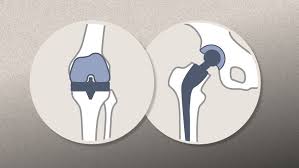Joint Replacement Course
Joint Replacement Course
Introduction
The Joint Replacement Course is an in-depth, multidisciplinary educational program designed for healthcare professionals involved in the care of patients undergoing joint replacement surgeries, such as total hip, knee, or shoulder arthroplasty. With the growing prevalence of osteoarthritis, traumatic joint injuries, and degenerative joint diseases, joint replacement has become one of the most common and successful surgical interventions to restore mobility, alleviate pain, and enhance quality of life.
This course provides a comprehensive understanding of the entire joint replacement journey—from patient selection and preoperative planning to surgical techniques, postoperative rehabilitation, and long-term care. Participants will gain evidence-based knowledge and practical insights to improve clinical decision-making and optimize outcomes in joint arthroplasty.
Course Objectives
By the end of this course, participants will be able to:
- Understand the indications, contraindications, and patient selection criteria for joint replacement surgeries.
- Review the anatomy and biomechanics of major joints (hip, knee, shoulder).
- Evaluate diagnostic imaging and preoperative assessments to plan appropriate surgical approaches.
- Understand prosthesis selection and differences in implant designs.
- Comprehend step-by-step surgical techniques in total and partial joint arthroplasty.
- Recognize and manage perioperative complications such as infection, thromboembolism, and prosthesis failure.
- Design and implement rehabilitation protocols for postoperative recovery.
- Counsel patients effectively on expectations, lifestyle adjustments, and follow-up care.
Target Audience
This course is suitable for a wide range of professionals involved in joint replacement care, including:
- Orthopedic surgeons and surgical residents
- Anesthesiologists and perioperative physicians
- Physical therapists and occupational therapists
- Nurses and nurse practitioners
- Physician assistants
- Medical students and rehabilitation medicine professionals
- Primary care physicians managing post-op care
Course Structure and Modules
The course is divided into several key modules, each addressing a critical aspect of joint replacement care:
1. Foundations of Joint Replacement
- History and evolution of joint replacement surgery
- Epidemiology and economic impact
- Quality-of-life outcomes and global trends
2. Patient Evaluation and Surgical Candidacy
- Comprehensive preoperative assessment
- Comorbidities affecting surgical risk
- Shared decision-making and informed consent
3. Anatomy and Biomechanics of Major Joints
- Functional anatomy of the hip, knee, and shoulder
- Principles of load distribution and alignment
- Gait and range-of-motion analysis
4. Imaging and Diagnostic Tools
- Radiographic evaluation techniques (X-ray, MRI, CT)
- Measuring joint space, deformity, and wear patterns
- Imaging for surgical planning
5. Surgical Techniques in Joint Replacement
- Total knee arthroplasty (TKA)
- Total hip arthroplasty (THA)
- Shoulder arthroplasty and reverse shoulder replacement
- Robotic-assisted and minimally invasive surgery
- Cemented vs. uncemented prostheses
6. Perioperative Management
- Anesthesia and pain control strategies
- Infection prevention and antibiotic prophylaxis
- Blood management and transfusion strategies
- Deep vein thrombosis (DVT) prophylaxis
7. Complications and Their Management
- Periprosthetic joint infection (PJI)
- Aseptic loosening and implant failure
- Dislocation, nerve injury, and fractures
- Revision surgery: indications and techniques
8. Rehabilitation and Postoperative Care
- Early mobilization principles
- Physical therapy goals for each phase of recovery
- Long-term activity restrictions and support
- Monitoring for signs of prosthetic wear or failure
9. Patient-Centered Care and Communication
- Setting realistic expectations
- Addressing chronic pain or dissatisfaction
- Multidisciplinary coordination with physiatrists, therapists, and social workers
10. Emerging Trends and Future Directions
- Smart implants and sensor technology
- Personalized joint replacement
- 3D printing and custom prosthesis development
- Tele-rehabilitation and AI-assisted follow-up care
Teaching Methods
This course emphasizes a blend of traditional instruction and hands-on practice to foster both knowledge and clinical application. Learning formats include:
- Lectures from orthopedic surgeons and rehabilitation experts
- Surgical video demonstrations
- Interactive case discussions
- Prosthesis handling workshops
- Rehabilitation simulation labs
- Pre- and post-operative patient journey mapping
- Panel discussions on complications and patient satisfaction
Assessment and Certification
Assessment includes:
- Knowledge quizzes at the end of each module
- Practical evaluation during workshops
- Final case presentation and feedback session
Participants who complete all modules and pass the final assessment will receive a Certificate of Completion. Eligible participants may also receive CME or CEU credits, depending on local accreditation standards.
Benefits of the Course
Graduates of the Joint Replacement Course will:
- Improve their understanding of modern joint replacement techniques
- Enhance patient outcomes through optimized perioperative care
- Minimize complications via evidence-based prevention strategies
- Collaborate more effectively in multidisciplinary teams
- Provide comprehensive pre- and post-surgical counseling
- Stay up to date with innovations in orthopedic technology
Conclusion
The Joint Replacement Course is an essential resource for healthcare professionals committed to excellence in musculoskeletal care. As joint replacement procedures continue to rise worldwide, so does the demand for skilled clinicians who can navigate the complexities of surgical management, rehabilitation, and patient-centered support.
Whether you're an orthopedic specialist seeking to refine your skills, a primary care provider managing post-op patients, or a rehabilitation expert facilitating recovery, this course offers the tools, knowledge, and confidence to deliver superior outcomes in joint arthroplasty.
.
Date
na
Course Faculty
Dr Balaji Asegaonkar
Course Syllabus
Introduction
Course Objectives
Course Fees
na
